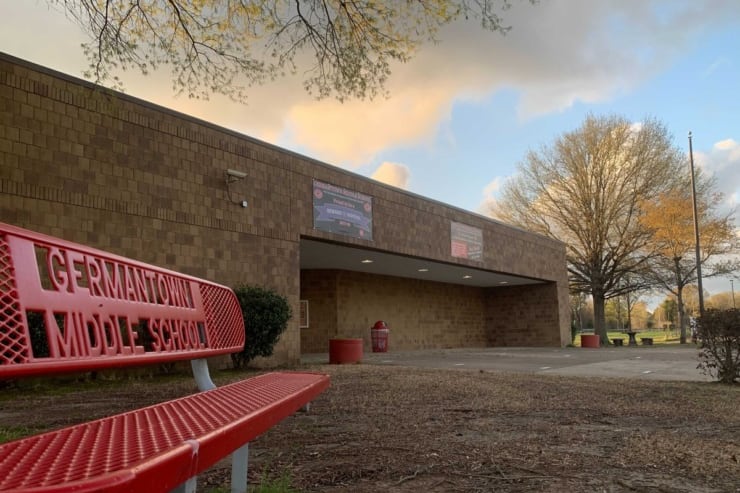City leaders in Germantown unanimously backed an agreement Monday that would allow its municipal school district to take over two schools currently operated by Memphis-Shelby County Schools, the first in a series of votes needed to settle a long-running dispute between the two districts.
If the Shelby County Commission votes for the deal Wednesday, and MSCS and the Germantown Municipal School District sign off on it Thursday, Germantown would pay MSCS $5 million for Germantown Elementary and Middle schools, which are both located in the Memphis suburb.
The deal also calls for Germantown to help sell the Germantown High School building, and for the county to subsidize construction of a new $100 million MSCS high school in Cordova.
According to a joint statement from the commission, the city of Germantown, the Germantown Municipal School District and MSCS, proceeds from the sale of the high school would be added to the $72 million that the county would provide for the new school.
“It just marked the culmination of a lot of compromise and negotiation to bring forward something that could be worked through,” said Germantown Mayor Mike Palazzolo.
“There’s an awkwardness in that the city of Germantown doesn’t manage schools that are named after Germantown,” Palazzolo added. “But this is a solution that gets everyone whole and takes care of multiple constituencies at once.”
The new high school would be the first one built in the MSCS district in more than a decade. And the transfer agreement would resolve a dispute that goes back to 2013, when Germantown and five other Memphis suburbs created their own school districts in response to the merger of the Memphis and Shelby County districts.
Germantown Elementary, Middle and High schools — known collectively as the “three G’s” — remained under the governance of Memphis-Shelby County Schools. But this year, Tennessee lawmakers passed a law that bars county school systems from operating schools within the geographic boundaries of a municipal school system, effectively forcing MSCS to cede the three schools to Germantown by year end.
The law sparked concerns that around 4,000 students who attend those schools, most of whom are Black and who live outside of Germantown, could be displaced.
The proposed agreement that the Germantown Board of Mayor and Aldermen backed Tuesday addresses that issue by creating a long transition period: It allows MSCS to continue operating the three G’s for nine more years.
That would give current students a chance to complete their education in those schools during preparations for the high school sale and the construction of the Cordova high school, according to a Germantown city press release.
“This comes with a remedy where students can continue their educational journey in the building they started in,” Palazzolo said.
Bureau Chief Tonyaa Weathersbee oversees Chalkbeat Tennessee’s education coverage. Contact her at tweathersbee@chalklbeat.org.






